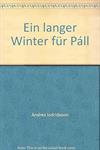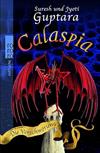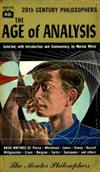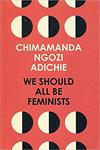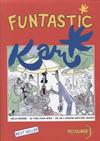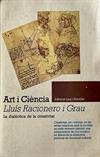
The Dispossessed (Gollancz S.F.)
Registered by LittleBigDave of Selby, North Yorkshire United Kingdom on 1/24/2009
 This Book is Currently in the Wild!
This Book is Currently in the Wild!
 This Book is Currently in the Wild!
This Book is Currently in the Wild!
1 journaler for this copy...
Journal Entry 1 by LittleBigDave from Selby, North Yorkshire United Kingdom on Saturday, January 24, 2009
I am releasing the 2 books together, so here is an essay I wrote on 'The Dispossessed' and 'The Day of the Triffids'
‘SF is basically nothing more than escapism’ (Mark Linkous).
‘SF is, despite appearances, the most serious mode of contemporary literature, the mode most engaged with the realities of the world we live in’(Gwyneth Jones).
Discuss.
The two above quotes give opposing opinions on the Science Fiction genre. Each side of the argument has its supporters and subsequently there is much debate regarding the literary validity of SF writing. Within the literary world there is often debate about the legitimacy and ‘worth’ of a certain text or a group of texts. The history of the English novel dates back to the early 18th Century a time when many readers and critics considered novels light, useless reading directed at women. Needless to say, the novel’s artistic and educational merit was greatly undervalued. As interest in the novel grew throughout the 19th century writers developed in scope and new genres were established. The popularity of written fiction has continued unabated and so too have the arguments surrounding the importance of certain genres. As the title of this essay indicates SF is one genre in which the debate rages. This assignment will look at both sides of the argument in conjunction with two SF texts, Ursula Le Guin’s The Dispossessed and John Wyndham’s The Day of the Triffids. Using evidence gathered from the novels and with support from secondary sources I will engage with the debate surrounding the SF genre and arrive at a conclusion proving its value in the literary world and emphasising the extent to which SF engages with and achieves relevance with the real world.
Jones’ statement in the title speaks for itself. Linkous’ statement is dismissive; his view that SF is ‘nothing more than escapism’ is pejorative and seems to undermine SF as a whole by implying that anything escapist is redundant for any other purpose. Addressing the charge that SF’s escapist label renders it useless David G. Hartwell says;
Science fiction has been accused of being escapist literature. It is. Judith Merrill and cohort SF writers of the fifties were creating seeds of change, using SF ideas to alter the present and create a more desirable future (Hartwell, 1996: 93-94).
Hartwell’s argument is that SF engages with the real world through its influence on readers. The escapism aspect of the writing allows the reader to glimpse a different, more desirable future and they will then be influenced by it to implement changes in the real world to further pursue the aim of achieving it. Later in the same book Hartwell says,
…powerful impact on the deepest levels of the human psyche flow through the conduit of SF…Young women, charged with visionary energy, hang with rapt attention upon the words of Le Guin, Russ, Bradley and Charnas” (Hartwell, 1996: 107).
If one is to question whether or not SF has the ability to transcend escapism; to provoke thought and to engage the reader with the realities of the real world then the answer is unequivocally yes. Why? Well, Triffids and Dispossessed both address and challenge the realities of the real world on many levels, one of these being their exploration of sexual equality and gender roles within society which they each tackle in different ways. Dispossessed highlights sexual inequality by depicting two parallel societies, one patriarchal society; Urras in which the gender roles are firmly established and operate much like in the real world, particularly the US where Le Guin was born and raised. The other; Anarres, is a planet where gender is not considered a social difference. The institution of marriage does not exist, subsequently relationships are transient and last only as long as each person remains interested. There are very few sexual taboos and women are allowed to be as sexually assertive as males. Women work as hard as males and little or no distinction is made between the sexes. The characters in Dispossessed engage in fierce debate about gender roles that can’t fail to be poignant to feminist readers and champions of gender equality. The novel raises questions about the dynamics of a patriarchal society, in one extract a discussion between Shevek and Vea reads,
‘I want to know, is an Urrasti woman content to be always inferior?’… ‘It seems that everything your society does is done by men. The industry, arts, management, government, decisions. And all your life you bear the father’s name and the husband’s name… Why do you let them control everything? Why don’t you do what you like?’ (Le Guin, 2006: 186)
This discontent, although expressed by a man, echoes the view of many second wave feminists of the 60’s and 70’s who believed in putting an end to both political and cultural inequality. The novel not only highlights the inequality of a patriarchal regime but also emphasises the foolish reasoning behind many of its doctrines within lines such as;
‘Is there really no distinction between men’s work and women’s work?’
‘Well, no, it seems a very mechanical basis for the division of labour, doesn’t it?’ (Le Guin, 2006: 14).
The folly of believing in a distinction between men’s work and women’s work is also alluded to in Triffids. The assertion is put forth that women are complicit in their own oppression due not only to many generations of patriarchal indoctrination to adhere to gender roles but also to their having a vested interest in perpetuating the myth that men are more capable in certain fields. An extract from chapter 10 reads;
Everyone starts by knowing nothing about anything, but God gives him – and even her – brains to find out with… [women] handle the most complicated and delicate machines when they took the trouble to understand them. (Wyndham, 1951: 174 – 175)
Although this in itself is rather liberal thinking for the time, the novel does tend to drift into chauvinism, bordering at times on full blown misogyny. The same extract continues in a less feminist vein going on to say;
What generally happens is they’re too lazy to take the trouble… Hithero we have been able to afford to amuse ourselves with that kind of mental laziness and parasitism… [women] have made a necessary minimum of modifications to changing conditions, but they have always been minimum – and grudged at that. (Wyndham, 1951: 174 – 175)
Whilst the feminist bent in Wyndham’s novel is not as overt as in Le Guin’s novel; indeed it is rather convoluted and some question whether it exists at all, the advent of a breakdown of all sociological and economic norms does allow opportunities for women to assert themselves numerous some instances. The character Josella Playton, author of an apparently daring and sexually explicit novel comes to the fore as a confident, forward thinking woman. Although her willingness to accept polygyny (as opposed to polyandry) as a lifestyle choice and her support of the idea to adopt blind women as breeding stock may remove the agency of other women, hers remains largely intact and her domineering attitude see her take charge of the decision making process over Bill, her male counterpart on numerous occasions. That Triffids portrays a rather dated, male orientated view of gender roles compared to Dispossessed is irrelevant. It is undeniable that both novels surpass the role of mere escapist literature to examine those roles in a constructive and interesting way. In her article ‘Is Gender Necessary?’ Le Guin writes of how her feminist ideals and social conscience are projected onto her writing;
I began to want to define and understand the meaning of sexuality and the meaning of gender, in my life and in our society… But I was not a theoretician, a political thinker or activist, or a sociologist. I was and am a fiction writer. The way I did my thinking was to write a novel”. (Le Guin, 1989: 135-136)
This goes some way towards proving that her work is far from being merely a means of escape, for her or for her audience, and is in fact her way of engaging with the real world and making solid her inner thoughts and hypothesis in the same way that a sociologist or politician’s work functions as an outlet for their creative impulses and professional ambitions.
The earlier Hartwell quotes refer to the way in which SF influences its readers, who in turn affect change in the world around them. This process of influence works as a cycle and SF is also heavily inspired by the political and economic environment in which it is written. Many writers use SF texts to act as a social commentary on the world in which they live. Brian Aldiss asserts that, “our SF culture springs from nations with most power. So power is naturally a prevailing theme.” (Aldiss: 1995, 17). This is particularly true for Triffids and Dispossessed, both of which have power relations within economic and governmental regimes at the heart of their narratives.
The collapse of civilisation in Triffids prompts survivors to form a number of small communes, each operating along different political lines and run by de facto ‘governments’ with different values and beliefs. Most of these communes operate with a focus on mutual cooperation in which blind people and sighted people are each allocated tasks according to their abilities. Two regimes which establish themselves towards the end of the novel are notable due to their being binary opposites of each other and also due to their similarity to the systems in place in Dispossessed. Le Guin’s novel was published with the subtitle; An Ambiguous Utopia. Le Guin constructs two planets, each with their positive elements and each with their faults and failings. In keeping with the ambiguity of the title neither one is overtly depicted as being superior to the other either through its morals or its ability to function successfully. The novel allows the reader to examine each planet and decide for themselves which, if any, is a utopian society, or as close to a utopia as is possible to achieve and which is dystopian. Similarly the main protagonists of Triffids are also presented with a choice towards the novel’s denouement. The final chapters see the Masen family approached by the ‘leaders’ of two separate communes. By one the family is offered a place on a democratic island haven which like the earlier communes is run on cooperation and mutual acceptance. By the other Bill is offered a ‘feudal seigneury’ in which he will be allocated a group of blind people, feeding them on cattle food he will be encouraged to use them as labourers to tend his land whilst he reaps the benefits. Startlingly similar to the totalitarian regime of Nazi Germany they propose to remove certain young family members at their will in order to train them to the specifications perceived to be required by the ‘government’. This group are the ‘Emergency Council for the South-Eastern Region of Britain’, undeniably a fascist dictatorship, run by a militia who wish to capitalise on their sight and the power it gives them by forming a ruling elite. Their leader says of them, “Supreme authority and legislative power is vested in the Council. It will rule. It will also control the armed forces”. (Wyndham, 1951: 266).
Reading from a Marxist perspective The Council’s function in the novel is to show how greed and power can be corruptive influences. They themselves have been corrupted by their ability to oppress the blind masses with military power and their control of resources, and they hope to recruit Bill and other sighted people to do the same. The dangers of allowing total control to fall into the hands of a government who control the armed forces and the police are shown in The Dispossessed when a protest by the working classes is suppressed by the police on the order of their government;
As he finished speaking the clattering racket of police helicopters drawing near began to drown out his voice… the chatter of the machine-guns fired from the helicopters. Even as the crowd rose up in the tumult the clack of the helicopters was still audible through it, the mindless yell of weaponry, the meaningless voice. (Le Guin, 1989: 261).
The anthropomorphist description of chattering machine-guns and the mindless yell of weaponry seems to imply that they are tools of an oppressive, mindless regime run almost like a machine. Triffids shows how this kind of regime can seduce through corruption, how it can operate and how it can come into power. The Dispossessed shows the damage that this type of regime can inflict upon its people. Far from being devices dreamed up in order to aid escapism these topics are, according to Brian Aldiss, at the very core of SF;
Another topic rarely discussed goes to the very roots of SF – the drift towards the impersonal, towards humans as units, as machines. Towards rule by machines. Towards the sort of giantism in corporations and architecture such as Nazi Germany preferred. Towards anything which rules out of court the quiet dissident voice of the individual… Towards the immense. Towards metropolis and megalopolis. Towards galactic empires. Towards artificial intelligence taking over from us. Towards, in sum, most of the gaudy goodies on the front counter of SF’s supermarket. (Aldiss: 1995, 17
Here Aldiss is showing how the fantastical elements of SF such as galactic empires and usurpation by AI are intertwined in SF with plausible, real world threats from governmental superpowers and militaristic regimes. Using cognitive estrangement the SF reader can, if they choose, use these fictional narratives as a lens through which to view their own environment and the world they live in.
Referring back to the original assertions that ‘SF is basically nothing more than escapism’ and ‘SF is, despite appearances, the most serious mode of contemporary literature, the mode most engaged with the realities of the world we live in’ it is apparent that the distinction between escapism and engagement is one made by the reader as much as the author. Any novel of any genre has the potential to be merely an aid to escapism if the reader chooses to use it as such, conversely if the reader uses what is read to provoke thought and gain insight then this becomes engagement. In a sense SF engages with the realities of the real world to such an extent that it forms a cycle; the author is influenced by the world in which they live and the environment in which they write and this is reflected in the work they produce. This work reaches its audience who is in turn influenced by the text and goes onto implement change in the real world, this then becomes the reality and the context in which future authors will write; and thus the cycle continues.
Bibliography:
Primary Source/s
Le Guin, U. (2006), The Dispossessed, Gollancz Publishing
Wyndham, J. (1951), The Day of the Triffids, Penguin Books
Secondary Source/s:
Aldiss, B. W. (1995), The Detached Retina, Liverpool University Press
Hartwell, G. D. (1996), Age of Wonders, TOR
Le Guin, U. (1989), The Language of the Night: essays on fantasy and science fiction: The Women’s Press
‘SF is basically nothing more than escapism’ (Mark Linkous).
‘SF is, despite appearances, the most serious mode of contemporary literature, the mode most engaged with the realities of the world we live in’(Gwyneth Jones).
Discuss.
The two above quotes give opposing opinions on the Science Fiction genre. Each side of the argument has its supporters and subsequently there is much debate regarding the literary validity of SF writing. Within the literary world there is often debate about the legitimacy and ‘worth’ of a certain text or a group of texts. The history of the English novel dates back to the early 18th Century a time when many readers and critics considered novels light, useless reading directed at women. Needless to say, the novel’s artistic and educational merit was greatly undervalued. As interest in the novel grew throughout the 19th century writers developed in scope and new genres were established. The popularity of written fiction has continued unabated and so too have the arguments surrounding the importance of certain genres. As the title of this essay indicates SF is one genre in which the debate rages. This assignment will look at both sides of the argument in conjunction with two SF texts, Ursula Le Guin’s The Dispossessed and John Wyndham’s The Day of the Triffids. Using evidence gathered from the novels and with support from secondary sources I will engage with the debate surrounding the SF genre and arrive at a conclusion proving its value in the literary world and emphasising the extent to which SF engages with and achieves relevance with the real world.
Jones’ statement in the title speaks for itself. Linkous’ statement is dismissive; his view that SF is ‘nothing more than escapism’ is pejorative and seems to undermine SF as a whole by implying that anything escapist is redundant for any other purpose. Addressing the charge that SF’s escapist label renders it useless David G. Hartwell says;
Science fiction has been accused of being escapist literature. It is. Judith Merrill and cohort SF writers of the fifties were creating seeds of change, using SF ideas to alter the present and create a more desirable future (Hartwell, 1996: 93-94).
Hartwell’s argument is that SF engages with the real world through its influence on readers. The escapism aspect of the writing allows the reader to glimpse a different, more desirable future and they will then be influenced by it to implement changes in the real world to further pursue the aim of achieving it. Later in the same book Hartwell says,
…powerful impact on the deepest levels of the human psyche flow through the conduit of SF…Young women, charged with visionary energy, hang with rapt attention upon the words of Le Guin, Russ, Bradley and Charnas” (Hartwell, 1996: 107).
If one is to question whether or not SF has the ability to transcend escapism; to provoke thought and to engage the reader with the realities of the real world then the answer is unequivocally yes. Why? Well, Triffids and Dispossessed both address and challenge the realities of the real world on many levels, one of these being their exploration of sexual equality and gender roles within society which they each tackle in different ways. Dispossessed highlights sexual inequality by depicting two parallel societies, one patriarchal society; Urras in which the gender roles are firmly established and operate much like in the real world, particularly the US where Le Guin was born and raised. The other; Anarres, is a planet where gender is not considered a social difference. The institution of marriage does not exist, subsequently relationships are transient and last only as long as each person remains interested. There are very few sexual taboos and women are allowed to be as sexually assertive as males. Women work as hard as males and little or no distinction is made between the sexes. The characters in Dispossessed engage in fierce debate about gender roles that can’t fail to be poignant to feminist readers and champions of gender equality. The novel raises questions about the dynamics of a patriarchal society, in one extract a discussion between Shevek and Vea reads,
‘I want to know, is an Urrasti woman content to be always inferior?’… ‘It seems that everything your society does is done by men. The industry, arts, management, government, decisions. And all your life you bear the father’s name and the husband’s name… Why do you let them control everything? Why don’t you do what you like?’ (Le Guin, 2006: 186)
This discontent, although expressed by a man, echoes the view of many second wave feminists of the 60’s and 70’s who believed in putting an end to both political and cultural inequality. The novel not only highlights the inequality of a patriarchal regime but also emphasises the foolish reasoning behind many of its doctrines within lines such as;
‘Is there really no distinction between men’s work and women’s work?’
‘Well, no, it seems a very mechanical basis for the division of labour, doesn’t it?’ (Le Guin, 2006: 14).
The folly of believing in a distinction between men’s work and women’s work is also alluded to in Triffids. The assertion is put forth that women are complicit in their own oppression due not only to many generations of patriarchal indoctrination to adhere to gender roles but also to their having a vested interest in perpetuating the myth that men are more capable in certain fields. An extract from chapter 10 reads;
Everyone starts by knowing nothing about anything, but God gives him – and even her – brains to find out with… [women] handle the most complicated and delicate machines when they took the trouble to understand them. (Wyndham, 1951: 174 – 175)
Although this in itself is rather liberal thinking for the time, the novel does tend to drift into chauvinism, bordering at times on full blown misogyny. The same extract continues in a less feminist vein going on to say;
What generally happens is they’re too lazy to take the trouble… Hithero we have been able to afford to amuse ourselves with that kind of mental laziness and parasitism… [women] have made a necessary minimum of modifications to changing conditions, but they have always been minimum – and grudged at that. (Wyndham, 1951: 174 – 175)
Whilst the feminist bent in Wyndham’s novel is not as overt as in Le Guin’s novel; indeed it is rather convoluted and some question whether it exists at all, the advent of a breakdown of all sociological and economic norms does allow opportunities for women to assert themselves numerous some instances. The character Josella Playton, author of an apparently daring and sexually explicit novel comes to the fore as a confident, forward thinking woman. Although her willingness to accept polygyny (as opposed to polyandry) as a lifestyle choice and her support of the idea to adopt blind women as breeding stock may remove the agency of other women, hers remains largely intact and her domineering attitude see her take charge of the decision making process over Bill, her male counterpart on numerous occasions. That Triffids portrays a rather dated, male orientated view of gender roles compared to Dispossessed is irrelevant. It is undeniable that both novels surpass the role of mere escapist literature to examine those roles in a constructive and interesting way. In her article ‘Is Gender Necessary?’ Le Guin writes of how her feminist ideals and social conscience are projected onto her writing;
I began to want to define and understand the meaning of sexuality and the meaning of gender, in my life and in our society… But I was not a theoretician, a political thinker or activist, or a sociologist. I was and am a fiction writer. The way I did my thinking was to write a novel”. (Le Guin, 1989: 135-136)
This goes some way towards proving that her work is far from being merely a means of escape, for her or for her audience, and is in fact her way of engaging with the real world and making solid her inner thoughts and hypothesis in the same way that a sociologist or politician’s work functions as an outlet for their creative impulses and professional ambitions.
The earlier Hartwell quotes refer to the way in which SF influences its readers, who in turn affect change in the world around them. This process of influence works as a cycle and SF is also heavily inspired by the political and economic environment in which it is written. Many writers use SF texts to act as a social commentary on the world in which they live. Brian Aldiss asserts that, “our SF culture springs from nations with most power. So power is naturally a prevailing theme.” (Aldiss: 1995, 17). This is particularly true for Triffids and Dispossessed, both of which have power relations within economic and governmental regimes at the heart of their narratives.
The collapse of civilisation in Triffids prompts survivors to form a number of small communes, each operating along different political lines and run by de facto ‘governments’ with different values and beliefs. Most of these communes operate with a focus on mutual cooperation in which blind people and sighted people are each allocated tasks according to their abilities. Two regimes which establish themselves towards the end of the novel are notable due to their being binary opposites of each other and also due to their similarity to the systems in place in Dispossessed. Le Guin’s novel was published with the subtitle; An Ambiguous Utopia. Le Guin constructs two planets, each with their positive elements and each with their faults and failings. In keeping with the ambiguity of the title neither one is overtly depicted as being superior to the other either through its morals or its ability to function successfully. The novel allows the reader to examine each planet and decide for themselves which, if any, is a utopian society, or as close to a utopia as is possible to achieve and which is dystopian. Similarly the main protagonists of Triffids are also presented with a choice towards the novel’s denouement. The final chapters see the Masen family approached by the ‘leaders’ of two separate communes. By one the family is offered a place on a democratic island haven which like the earlier communes is run on cooperation and mutual acceptance. By the other Bill is offered a ‘feudal seigneury’ in which he will be allocated a group of blind people, feeding them on cattle food he will be encouraged to use them as labourers to tend his land whilst he reaps the benefits. Startlingly similar to the totalitarian regime of Nazi Germany they propose to remove certain young family members at their will in order to train them to the specifications perceived to be required by the ‘government’. This group are the ‘Emergency Council for the South-Eastern Region of Britain’, undeniably a fascist dictatorship, run by a militia who wish to capitalise on their sight and the power it gives them by forming a ruling elite. Their leader says of them, “Supreme authority and legislative power is vested in the Council. It will rule. It will also control the armed forces”. (Wyndham, 1951: 266).
Reading from a Marxist perspective The Council’s function in the novel is to show how greed and power can be corruptive influences. They themselves have been corrupted by their ability to oppress the blind masses with military power and their control of resources, and they hope to recruit Bill and other sighted people to do the same. The dangers of allowing total control to fall into the hands of a government who control the armed forces and the police are shown in The Dispossessed when a protest by the working classes is suppressed by the police on the order of their government;
As he finished speaking the clattering racket of police helicopters drawing near began to drown out his voice… the chatter of the machine-guns fired from the helicopters. Even as the crowd rose up in the tumult the clack of the helicopters was still audible through it, the mindless yell of weaponry, the meaningless voice. (Le Guin, 1989: 261).
The anthropomorphist description of chattering machine-guns and the mindless yell of weaponry seems to imply that they are tools of an oppressive, mindless regime run almost like a machine. Triffids shows how this kind of regime can seduce through corruption, how it can operate and how it can come into power. The Dispossessed shows the damage that this type of regime can inflict upon its people. Far from being devices dreamed up in order to aid escapism these topics are, according to Brian Aldiss, at the very core of SF;
Another topic rarely discussed goes to the very roots of SF – the drift towards the impersonal, towards humans as units, as machines. Towards rule by machines. Towards the sort of giantism in corporations and architecture such as Nazi Germany preferred. Towards anything which rules out of court the quiet dissident voice of the individual… Towards the immense. Towards metropolis and megalopolis. Towards galactic empires. Towards artificial intelligence taking over from us. Towards, in sum, most of the gaudy goodies on the front counter of SF’s supermarket. (Aldiss: 1995, 17
Here Aldiss is showing how the fantastical elements of SF such as galactic empires and usurpation by AI are intertwined in SF with plausible, real world threats from governmental superpowers and militaristic regimes. Using cognitive estrangement the SF reader can, if they choose, use these fictional narratives as a lens through which to view their own environment and the world they live in.
Referring back to the original assertions that ‘SF is basically nothing more than escapism’ and ‘SF is, despite appearances, the most serious mode of contemporary literature, the mode most engaged with the realities of the world we live in’ it is apparent that the distinction between escapism and engagement is one made by the reader as much as the author. Any novel of any genre has the potential to be merely an aid to escapism if the reader chooses to use it as such, conversely if the reader uses what is read to provoke thought and gain insight then this becomes engagement. In a sense SF engages with the realities of the real world to such an extent that it forms a cycle; the author is influenced by the world in which they live and the environment in which they write and this is reflected in the work they produce. This work reaches its audience who is in turn influenced by the text and goes onto implement change in the real world, this then becomes the reality and the context in which future authors will write; and thus the cycle continues.
Bibliography:
Primary Source/s
Le Guin, U. (2006), The Dispossessed, Gollancz Publishing
Wyndham, J. (1951), The Day of the Triffids, Penguin Books
Secondary Source/s:
Aldiss, B. W. (1995), The Detached Retina, Liverpool University Press
Hartwell, G. D. (1996), Age of Wonders, TOR
Le Guin, U. (1989), The Language of the Night: essays on fantasy and science fiction: The Women’s Press
Journal Entry 2 by LittleBigDave at Bench in Town Centre in Ormskirk, Lancashire United Kingdom on Saturday, January 24, 2009
Released 15 yrs ago (1/24/2009 UTC) at Bench in Town Centre in Ormskirk, Lancashire United Kingdom
WILD RELEASE NOTES:
WILD RELEASE NOTES:
Just on a bench, near the old Woolworths store
Just on a bench, near the old Woolworths store



